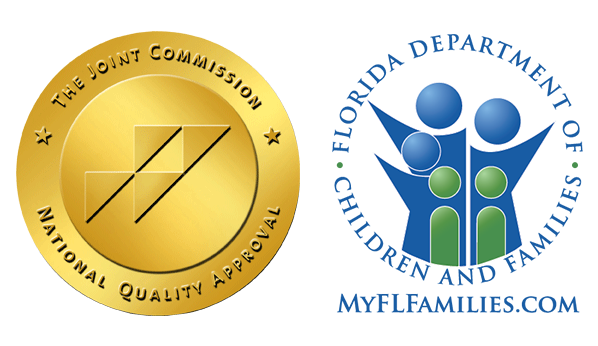An intervention is a planned discussion, often overseen by an intervention specialist from a recovery center, between loved ones and a person who is battling with a substance use disorder. Interventions that are effective will support loved ones in expressing their emotions about their journey through addiction. In cases where talking to the individual experiencing the issue is ineffective, a group intervention might be the next step. Through interventions, people with substance abuse issues can also learn how their actions impact those they care about. Assisting the addict in need of assistance with addiction recovery and therapy is the end goal of an intervention. At addiction group therapy in Delray Beach, we understand that as a loved one of a struggling addict, you know your role as an active member in enabling or preventing the destructive behavior of substance abuse. When the time is right, an intervention is a crucial part of the role of a loved one. In this post, we will share with you the essential role of intervention for a loved one struggling with addiction.
When Should I Intervene?
It is always challenging to confront someone who is battling addiction. Friends and family can have good intentions, yet they may be at a loss for words and unable to adequately express their emotions. In addition to denying that they are dealing with a substance abuse issue, the addict will often avoid open communication. Addiction group therapy in Delray Beach understands how important it is to intervene when the time is right, not before and not after.
Signs that indicate a person is having difficulty and is ready for an intervention may be:
- Lending money.
- Aggressive actions.
- Decline in physical appearance Deficit in drive or energy.
- Issues at the office or study.
- Health problems.
- Eating disorders and despair.
In order to treat these co-occurring illnesses, intervention professionals at addiction group therapy in Delray Beach can help guide the discourse.
How to Arrange an Intervention
Reaching out to an intervention professional is the first step in putting together an intervention. In addiction group therapy in Delray Beach, the interventionist will facilitate ongoing dialogue between you and your struggling loved one. Intervention professionals assist addicts in ending their toxic cycle of denial. It’s possible for solo conflicts to exacerbate the situation. The substance abuse disorder sufferer could become obstinate and refuse assistance. For this reason, it is not always the best idea to attempt an intervention without the help of a specialist.
Establish Your Intervention Team
Once the specialist is hired, they will collaborate with friends and family to develop an intervention plan. A one-size-fits-all plan of intervention does not exist. These experts collaborate with the parties involved to meet the specific needs of their loved one’s struggles. Your intervention team often includes parents, siblings, partners, coworkers, spouses, or close friends, but keep in mind the team for intervention must be prepared for anything, so little ones should stay uninvolved in most cases.
Acquire and Practice
A professional in intervention will lead the group on addiction treatment options. Insights from compassion and knowledge can be used by the interventionist to persuade the target of their need for assistance. Families and friends need to work with their intervention specialists from addiction group therapy in Delray Beach to practice and get ready for the intervention.
Addicts may not be aware of the impact of their behavior on the people closest to them. The brain chemistry of addicts is altered, leading them to prioritize drug abuse over everything else in their lives. A “moment of clarity” can be sparked through friends and family members sharing how the addicted individual has harmed them. Before the intervention, members of the intervening team should prewrite and review these stories with each other.
Pick a Date for the Intervention Meeting
Generally speaking, the intervention should take place in a comfortable, non-threatening setting. This makes the struggling addict feel less attacked throughout the intervention. Scheduling a time to meet when the loved one will be sober is also crucial. The average duration of an intervention is between thirty and ninety minutes. However, there is no set amount of time.
Be Prepared
When being confronted, you have no control or ability to forecast how your loved one will respond. Professionals with expertise in intervention have calmed difficult situations. For interventions to be as calm and effective as possible, it is important that they are present. Call 911 if your loved one’s response to being confronted puts the intervention party in danger.
Conclusion
Loved ones involved in an intervention must establish expectations and goals for the substance abuse disorder person’s post-intervention recovery. Setting expectations can make your loved one more responsible. The intervening party should clarify the consequences. If these consequences have to be applied, the intervention party must maintain its resolve. Get in touch with a treatment provider right now at addiction group therapy in Delray Beach for additional details about interventions and available options for you and your loved one struggling with addiction; you are not alone.












